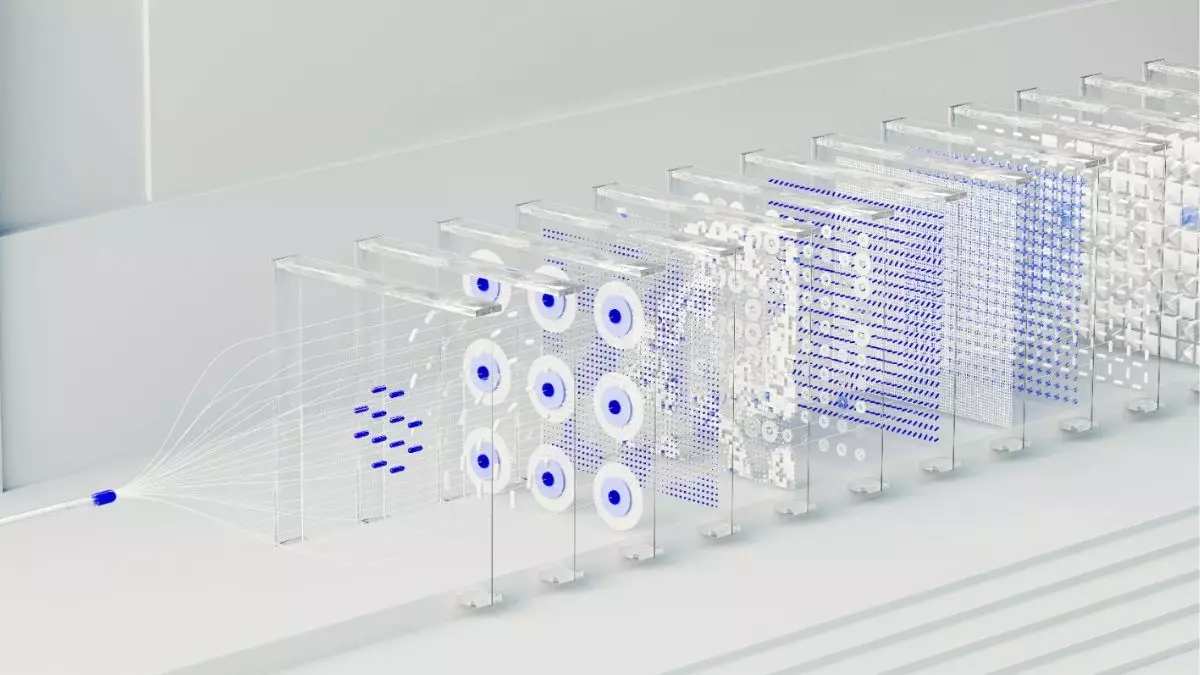In an era dominated by technological advancements, Tetsuwan Scientific emerges as a promising player in the intersection of artificial intelligence (AI) and scientific research. Based in San Francisco and founded in 2023, the startup is on a mission to reinvent how experimental science is conducted by integrating intelligent software with robotic systems. This innovative approach aims to minimize human intervention in experimentation, thereby potentially accelerating the pace of scientific discovery.
Tetsuwan Scientific’s unique proposition lies in its goal to automate the entire scientific inquiry process—from formulating hypotheses to conducting experiments and deriving conclusions. The startup recently stepped out of its stealth mode after securing significant seed funding, led by its co-founders, CEO Cristian Ponce and CTO Théo Schäfer, both of whom have extensive backgrounds in the technology and scientific sectors. Their vision reflects a paradigm shift: moving from robotic assembly lines that replicate predefined protocols to developing AI systems that can understand and execute scientific intent autonomously.
The existing landscape of laboratory automation is plagued by limitations. Traditional lab robots predominantly focus on executing high volumes of repetitive tasks rather than accommodating the diverse experimental needs of scientists. Tetsuwan Scientific identifies a critical problem: conventional robotic systems require intricate programming to perform specific tasks, which reduces their versatility. Rather than functioning as intelligent assistants capable of adapting to different scientific inquiries, these robots operate more like industrial machines confined to assembly lines.
In light of this, Tetsuwan Scientific has proposed solutions grounded in the capabilities of generative AI models, particularly large language models (LLMs). These advanced AI technologies present a pathway for more intuitive interaction between scientists and robots, where the communication of scientific intent could occur without the cumbersome requirement of extensive coding. Ponce emphasizes this breakthrough as crucial, stating that it allows for a more fluid dialogue that can significantly enhance the effectiveness of robotic systems in laboratories.
Currently in collaboration with La Jolla Labs, Tetsuwan Scientific aims to apply its technology specifically in RNA therapeutic drug development, illustrating its practical implications in cutting-edge biomedicine. However, the startup is still largely in the exploratory phase of its journey, with no products available for public use as of yet. Their emphasis on a long-term vision underscores a commitment to creating autonomous robotic scientists that comprehend experimental complexities and adapt in real-time based on their findings.
The design of their robots is equally noteworthy. Unlike humanoid robots that often capture public imagination, Tetsuwan Scientific is developing large, non-humanoid vessels with glass-like exteriors. These robots are intended to possess the capability to autonomously evaluate results and adjust experimental parameters without human oversight. They aim to integrate AI-powered software with advanced sensory technology to master various scientific procedures, including calibration and liquid classification.
As the startup navigates the challenges associated with building independent AI labs, it highlights a twofold hurdle: advancing both intelligent software and adaptable hardware capable of functioning in tandem to naturally emulate scientific reasoning. By leveraging frameworks such as Retrieval-Augmented Generation (RAG), Tetsuwan Scientific aims to mitigate issues related to AI hallucinations, ensuring that the generated outputs remain consistent and reliable.
The promise of a future where robotic scientists can autonomously carry out research tasks signifies a potential watershed moment for the discipline of science. As Tetsuwan Scientific continues to refine its technology and develop its prototype robots into fully operational units, the implications extend beyond mere automation. The capability for robots to act as research assistants, capable of thinking and adapting, could redefine the nature of experimentation, potentially leading to breakthroughs in scientific understanding and innovation.
The evolution of Tetsuwan Scientific marks an exciting chapter for both AI and scientific exploration. As they strive toward realization, their work could herald a new era of research—a time when the lines between human intellect and machine precision blur, opening doors to unprecedented scientific achievements.


Leave a Reply